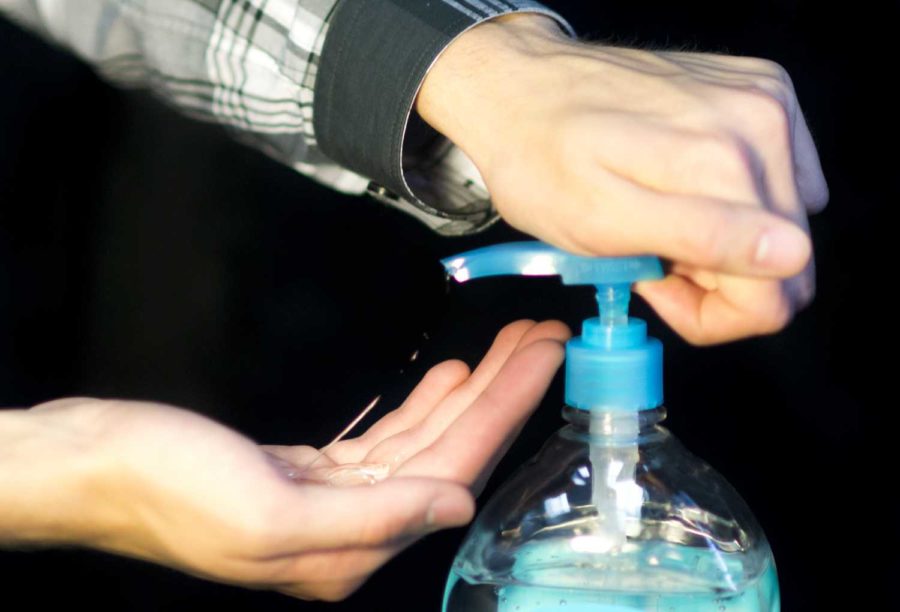Sanitation Innovation?
Photo by: James Schaap, Photo Editor
Antibacterial hand cleaner and soap has come under scrutiny from the FDA.
In light of the ongoing flu season, the FDA (Food and Drug Administration) proposed a rule that ‘antibacterial’ soap companies must prove the functionality of their products before giving them the antibacterial label.
The FDA has proposed a rule that companies must provide data to prove their sanitary products are more efficient and effective at removing bacteria in comparison to normal soap and water. The idea is to safeguard consumers from falsely thinking that some products hold an advantage over others unless it has been proved.
“Most people don’t even know what [antibacterial] means,” said Mrs. Tawney Safran, Cam High swim coach and AP European History teacher. “I think sometimes they think it means they are just cleaning their hands and getting the dirt off, not killing the germs, and then if you read on all of these [hand sanitizer bottles], it says it ‘Kills 99.9% of germs within seconds of use.'”
Safran, who was a recipient of donated Amgen-brand ‘Antibacterial Hand Sanitizer’, has it available throughout the classroom for her students to use. “I’m proud to say that I see some of my students using hand sanitizer without being prompted or asked to do it.”
Triclosan, one of the chemicals now under scrutiny, is an organic compound used in 76% of antibacterial liquid soap for its alleged bactericidal properties. Animal testing of the chemical has shown that it affects hormone regulation in rats, and muscle contraction in mice.
According to Mrs. Shannon Klemann, AP Biology teacher and science enthusiast, people should be careful of symptoms found in other mammals. Klemann clarified that even though it is not completely conclusive evidence, humans share a lot of DNA with other mammals, likes rats and mice, so it would be likely that a chemical negatively affecting them would do the same to humans.
She also commented how studies often administer higher doses of whatever substance they are testing on animals in order to quickly see symptoms. “Too much of anything is going to have an effect eventually,” said Klemann.
Additionally, a 2010 study on the effects of triclosan in humans found a correlation indicating that it may negatively affect human immune function.
“Exposure to triclosan and other antibacterial agents may lead to an excessively clean environment that disrupts the usual development of the immune system by eliminating or changing the commensal microbiota that normally help to shape the immune system,” reported the study.
The researchers also found that “triclosan […] showed a positive association with allergy or hay fever diagnosis.”
People against the use of bacterial chemicals are also worried about bacteria becoming resistant to these chemicals through overuse.
“Eventually, the antibacterial soap we use today will not be as effective,” said Klemann. “The scientific assumption is that eventually, knowing what we know about evolution, the bacteria will be resistant.”
About whether or not people should continue to use antibacterial products, Klemann said, “The antibacterial soap has been out long enough that if there was a major correlation it would have shown by now. Personally, I won’t stop using it.”

















































































![Senior Ditch Day... Relaxation or Truancy? [Video]](https://achsstinger.com/wp-content/uploads/2017/10/IMG_7119-900x599.jpg)
![Heavy Rain Hits Cam High [video]](https://achsstinger.com/wp-content/uploads/2017/02/maxresdefault-900x506.jpg)



